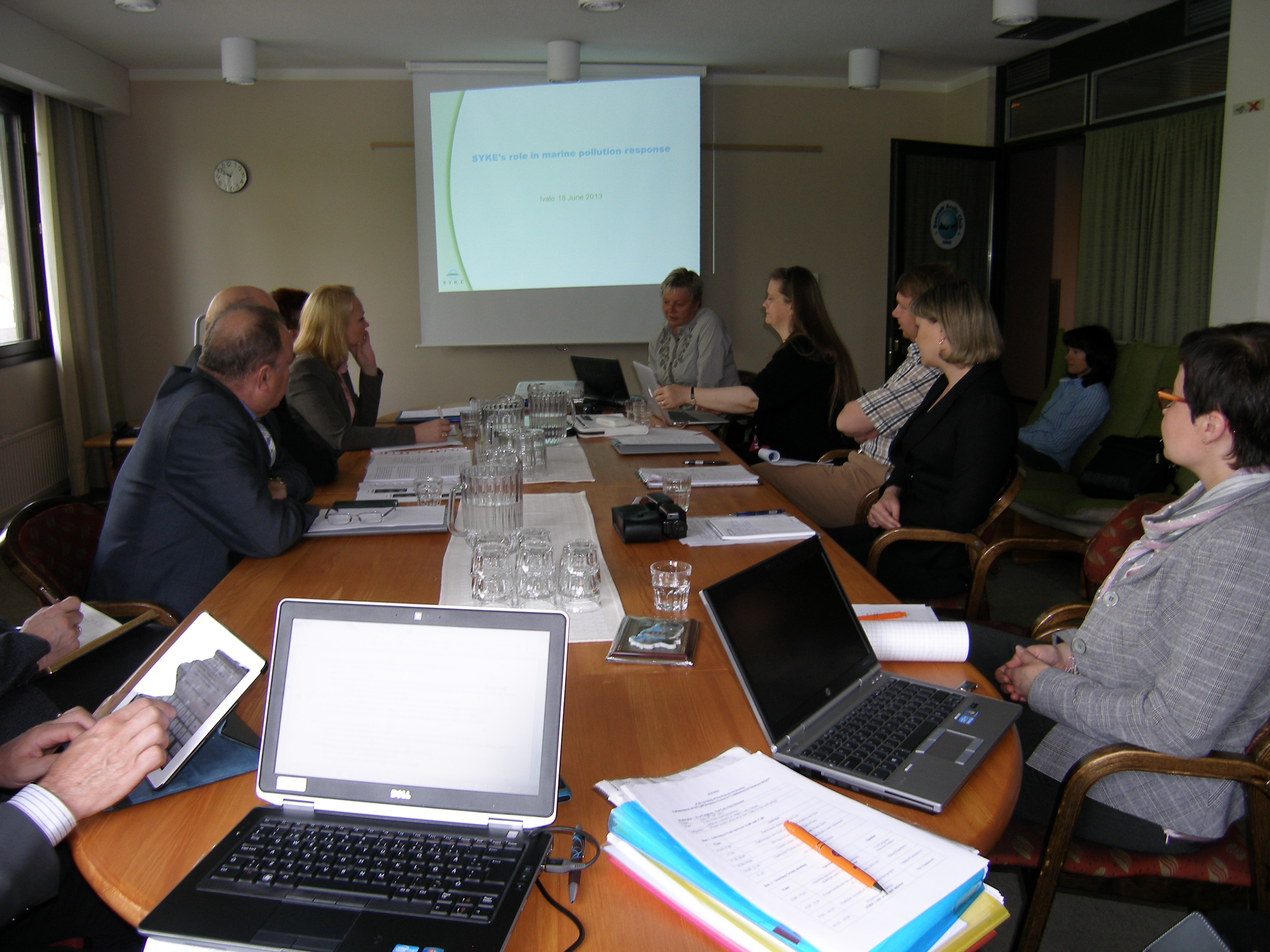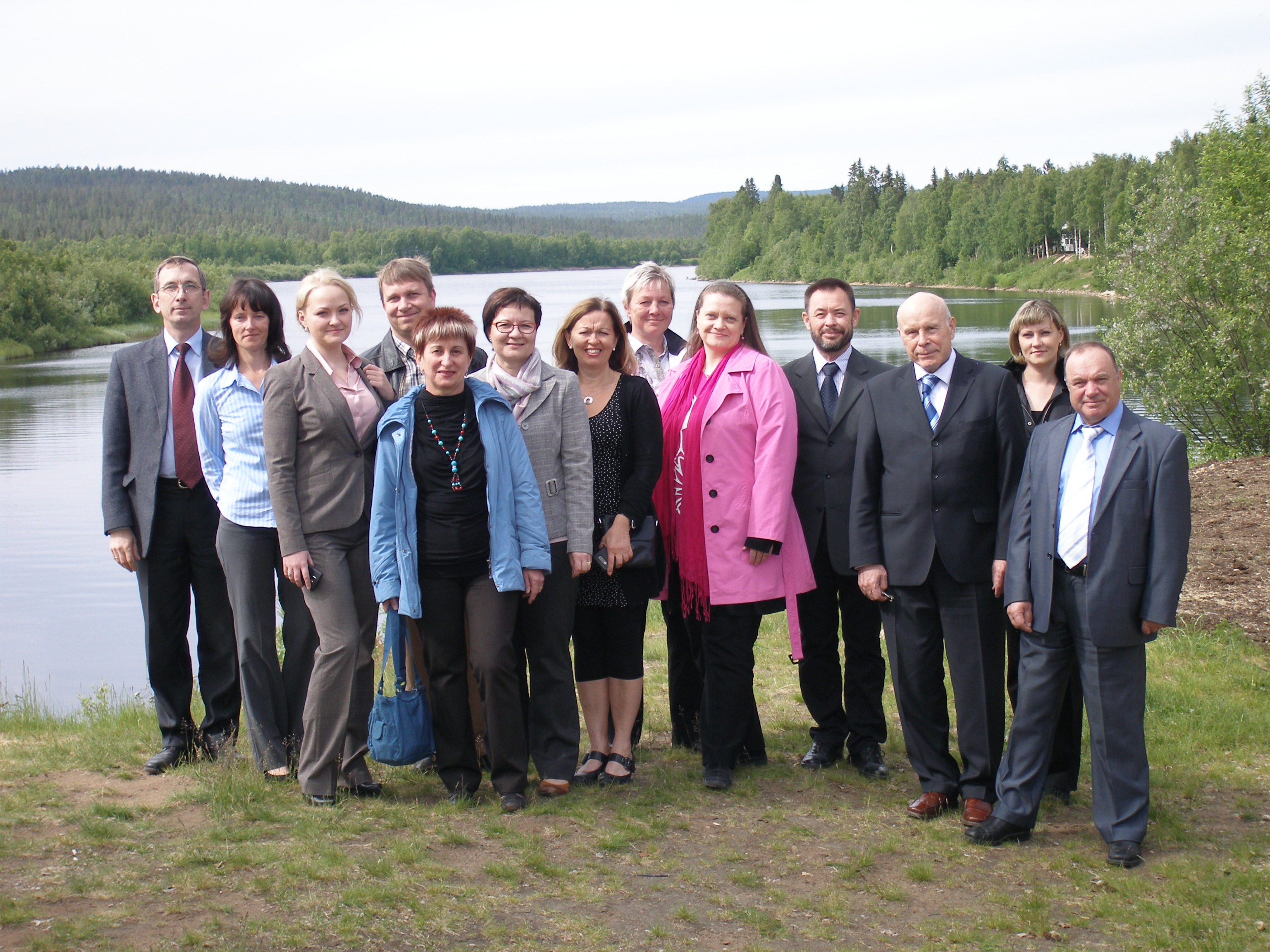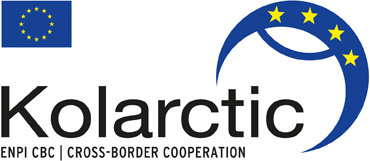| |
Succesful first year for OILSPILL project
"Enhancement of Oil Spill Response System through Establishing Oil Database" project (KO437), which was granted funding from Kolarctic ENPI CBC programe a year ago, has kept the partners busy during the first 12 months of the project. The partner and steering group meeting, which was held in Ivalo in June 2013, brought the experts together to share their results from the first year of the project. The project, which is led by the State Regional Centre of Standardization, Metrology and Testing in Murmansk Region (MCSM), aims to improve the oil spill preparedeness in the Arctic waters, which is expected to see a significant increase in shipping and in particularly in gas and oil extraction activities.
Cold waters set their own demands for oil spill response methods and technologies, which have be studied during the first year of the project. Since the northern shores of the Baltic get a thick ice layer every winter, there is plenty of know how and information in Finland on how to detect and to combat ice spills on ice. NorTech Oulu had gathered this experience into a report together with Finnish Environment Institute (SYKE). The main points of the report were presented to the participants in the meeting. |
 |
Heli Haapasaari from the Marine Pollution Response Section of SYKE told how the Finnish authorities have prepared for oil spills in the Finnish liability areas of the Baltic sea |
MCSM presented also initial results from vast oil studies, which had been conducted in their cold laboratory facilities. The aim was to study, how different kind of oils react in different temperatures, which had been carried out succesfully. Oil samples were subject to artificial oil weathering, in order to reach oil quality similar to oil spilled in seawater 1 hour, 1 day and from 2 to 5 days after the spill. The physical and chemical properties of oil was studied and some samples were tested also for their emulsifying properties. Oil samples with different content of sea water in them were tested in the laboratory at the temperature of +5 Сelsius and +13 Сelsius for revealing dynamic viscosity factor. All these data have been processed and grouped into six preliminary models of oil spill behaviour. Final working models of oil spill behaviour will be established after the study of the dispersants performance with different types of oil and are planned for the second year of the project.
|
The project has progressed according to the plan and has already produced plenty of infromation, which can improve preparedness and response of oil spills in Arctic waters. Laboratory studies will be continued, and a new cold room is planned to be built by MCSM in order to carry out oil studies in colder circumstances. Acquired information is going to be put into a test, as actual field studies are also planned to be carried out at in spring 2014. |

The participants of the meeting gathered for a group phote at the banks of Ivalo river |
| |
|
Back to the main page of the project
Homepage of the project at MCSM website
News
archive

|
|
